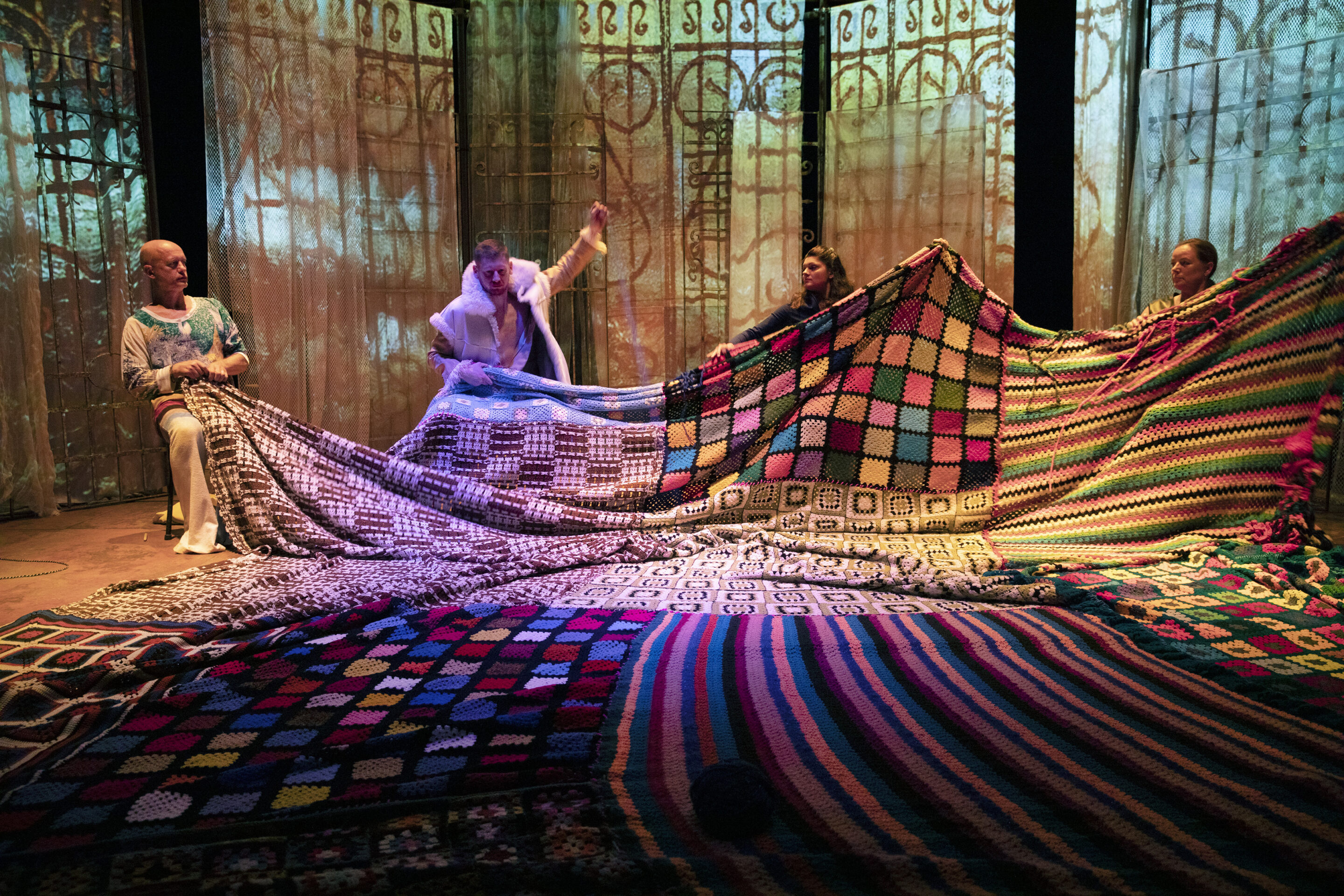For eight weeks in May and June, the quiet Flemish city of Ghent is being transformed into the buzzing cultural metropolis of ancient Athens, with a total of 32 Greek tragedies being performed across the town.
The idea for the 'All Greeks Festival' was conceived by the former artistic director of NTGent city theatre, Milo Rau. While walking in a park in Paris, Rau spotted Shakespeare being performed by amateurs actors and decided he wanted to replicate the experience in Ghent – but with Greek tragedies.
Rau's revelation is now finally being realised, as 32 plays will be performed over the city from 1 May to 23 June, under the aegis of curators Matthias Velle and Benoît Vanraes.
"The goal of the festival is not only artistic but also to have many inter-sectoral collaborations, for example with care hospitals, youth organisations and civil society," Velle told The Brussels Times, adding that he wants to bring together as many people as possible.
"In ancient Athens, theatre had a far more crucial place in the city. Going to the theatre was a civil act during the Great Dionysia [ed. a large theatrical festival in ancient Athens in honour of the god of tragedy, Dionysus]. We don't have that anymore. But over the eight weeks we will put theatre and the questions posed in these tragedies in the spotlight."
Election fever
Velle hopes that the tragedies will prompt visitors to reflect on the issues they raise, which remain relevant to our society today. Somewhat appropriately, Belgian and European elections fall on 9 June, midway through the festival.
"Democracy is under pressure just as it was at the end of the fifth century BC – not just from geopolitical conflict elsewhere, but also within our country," Velle says.
Just like our modern-day society, "right-wing populism is very much the context of Euripides' 'The Suppliants', with a constant battle between the democrats and the oligarchs within the city. It is the starting point of a debate concerning the future and the threats of democracy."
Parallels between past and present
The curator aims to highlight intersections between Greek tragedy and modern life, both in terms of content and also in the public space.
For instance, Euripides' meta tragedy 'The Bacchae' (performed by Villa Voortman, Het Scheldeoffensief and Comp. Marius on 23 June) leads viewers to think of the increased surveillance during the Covid crisis and in response to the agression of young people from Brussels and elsewhere at the Blaarmeersen (a recreation area on the outskirts of Ghent).
"What is interesting is the dynamic between liberty and law and order, as seen in Euripides' tragedy," Velle explains. "There is a Trumpian fence at the Blaarmeersen during summer now. There are very few places for public swimming when it's hot, you have to show your ID and people coming from outside the city have to pay; the atmosphere has completely changed."
Although this is a local phenomenon, restrictions on freedom represent a wider issue in society. "We have to strike a balance between liberty and safety."
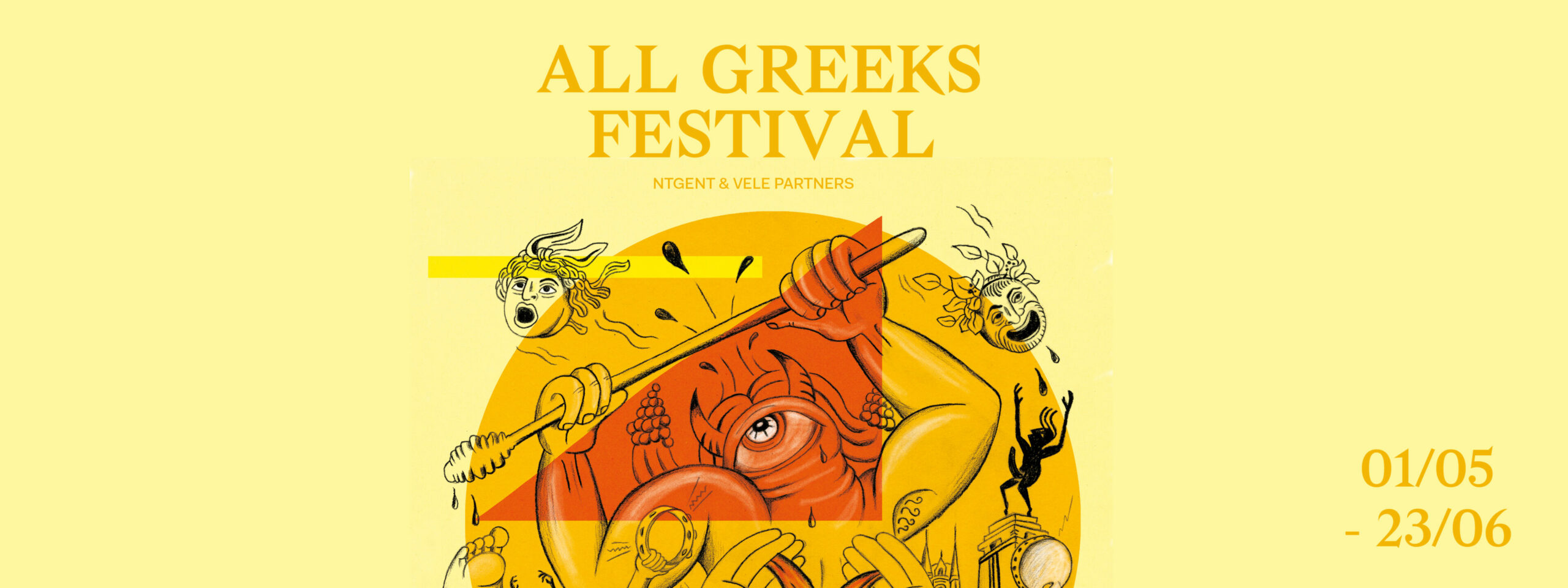
All Greeks Festival. Credit: NTGent
To attract a wider audience, all performances are free and there is no need to book in advance. Velle has ensured that most locations (except the amphitheatre) are open spaces to lure in passers-by. Some plays will also have English subtitles.
The local community is also intrinsically involved, with healthcare organisations and at least 20 schools participating in the programme to promote inclusion and diversity.
Week three (13 to 19 May) will take place at the Guislainsite. "This is a fantastic site in Ghent which has a psychiatric museum and hospital. Dutch-Moroccan director Khadija El Kharraz Alami has been working there for months with patients from the hospital. In this way, we are directly involving the city's communities in the project."
Moreover, Velle has created a visual and user-friendly city map instead of a text-heavy brochure. This clearly marks out the weekly locations accompanied by mythological drawings of classical figures by illustrator Sarah Yu Zeebroek.
Each location was carefully chosen by Velle. The historic centre was essential for its political significance while other neighbourhoods, such as the Bloemekenswijk (week seven) and the Watersportbaan (week eight), he feels are in need of a greater cultural offering. Velle hopes that the festival will address this.
Why Ghent?
Ghent has roughly the same number of residents as Athens in 500 BC, a similarity which Velle believes makes it well-suited for the festival. The city also prides itself on its cultural and artistic scene.
Velle notes that Antwerp would be a more difficult location due to the mayor's (Bart de Wever) "war on drugs and strong law and order approach to governing the city."
He cites the novel 'Alkibiades' of Dutch poet and novelist Ilja Leonard Pfeijffer, who says that Ghent is the 'Athens of Flanders' with a similarly progressive nature. "We are a progressive isle within a rather conservative, centre-right-wing Flanders. Opinion polls show that we are increasingly veering towards the far-right. But Ghent is a very progressive combination of liberals, socialists and the Green Party."
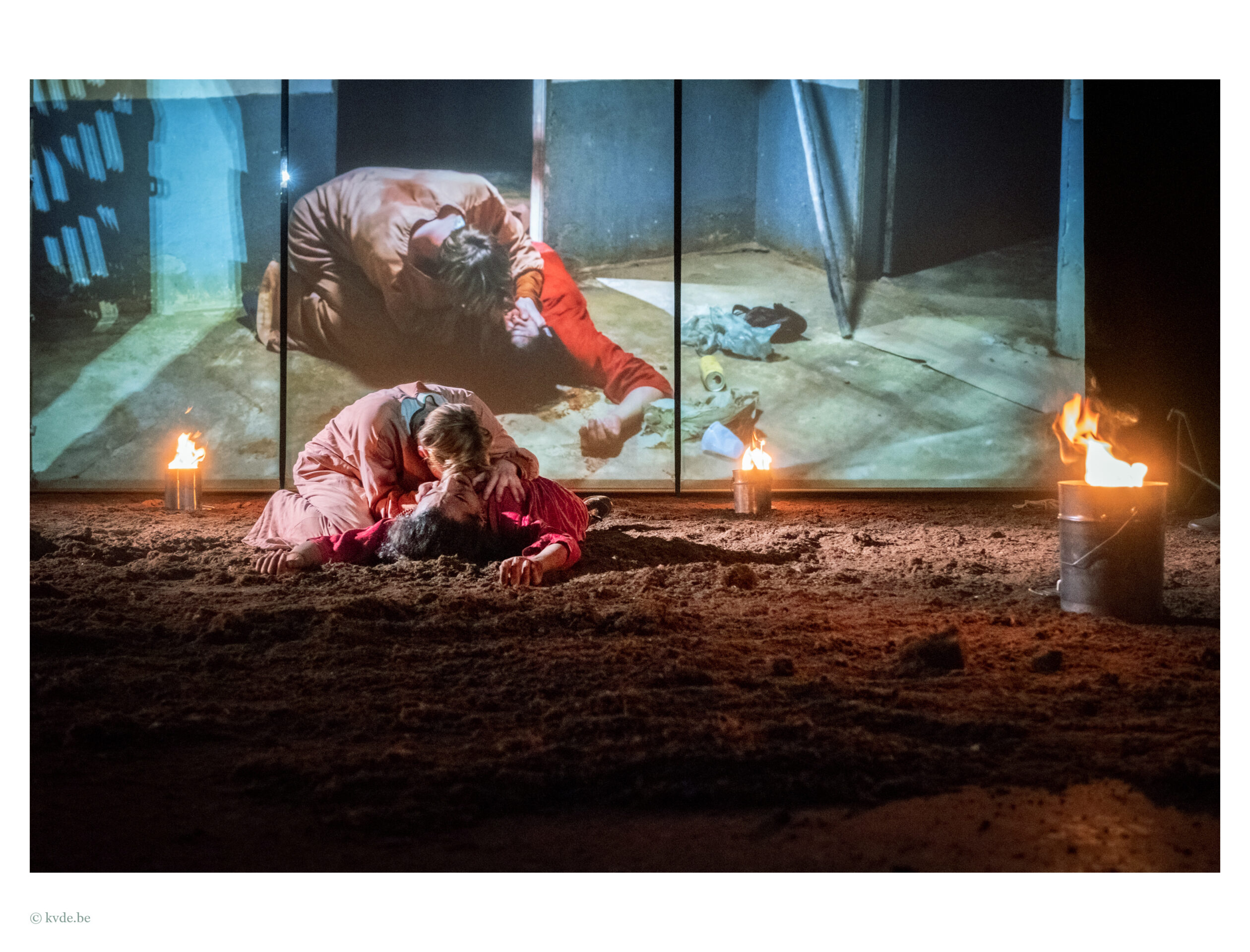
Antigone in the Amazon (week two). Credit: Kurt van der elst
From weeks one to eight, there is much for visitors to look forward to. The festival's opening ceremony, the 'Parade of Fire and Abundance' took place on Wednesday 1 May, mimicking the Olympic flame.
The flame travelled from the renowned De Krook library – where the ancient texts of Sophocles are preserved – to the main square, where it was lit to symbolise the transition from summer to winter.
This grand procession also took place during the Great Dionysia in ancient Athens, when citizens brought a statue of Dionysus from the temple to the theatre at the foot of the Acropolis.
"We are doing the same in Ghent," Velle said, "although it is more of a colourful carnival procession, with three choirs and families with children."
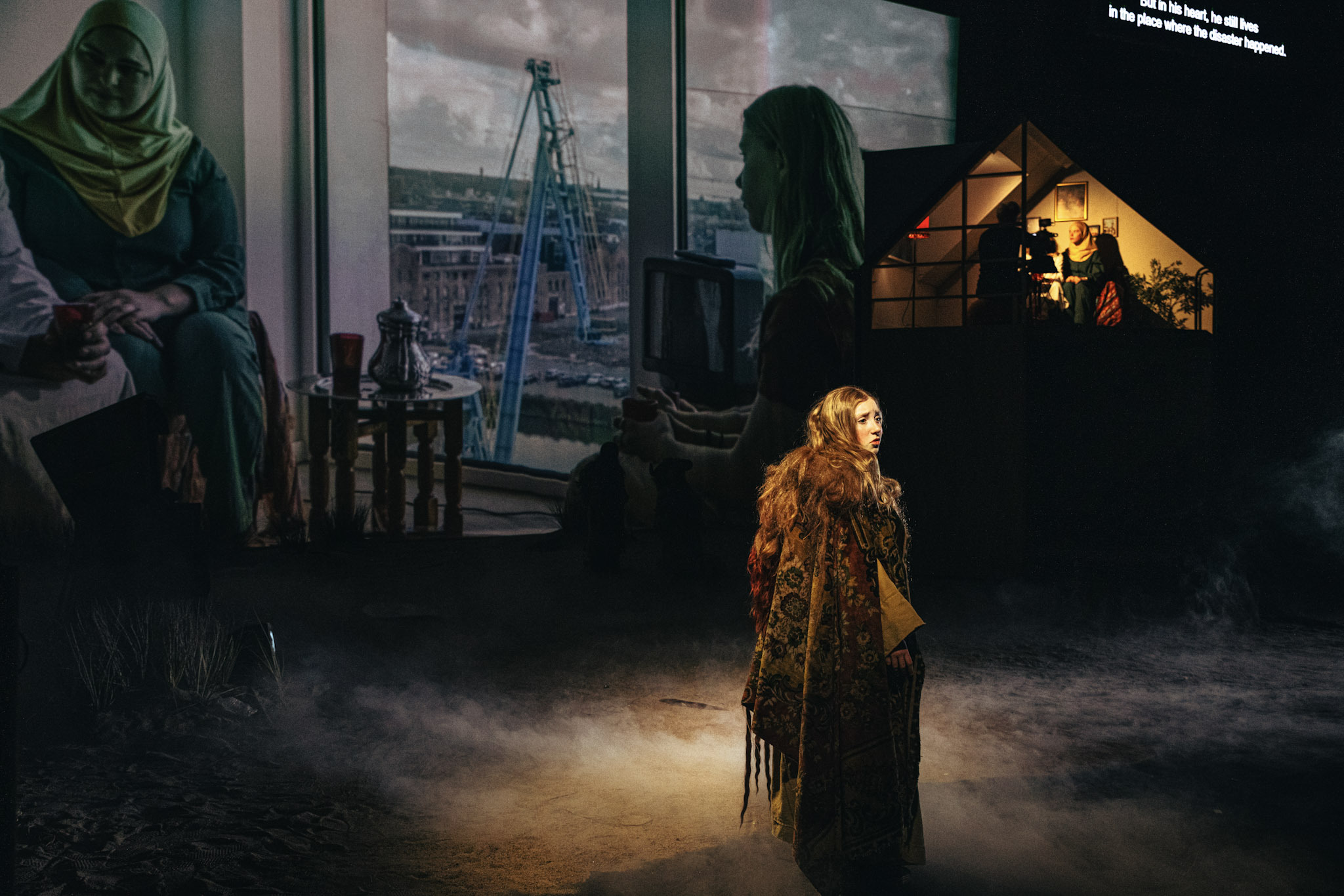
Medea's children (week two). Credit: Michiel Devijver
On Saturday 4 May, there will be another parade: EXHAUST/AJAX BY Kris Verdonck, which Velle describes as the "coolest concept of the festival". It will display the "execution of the very last combustion engine, on the altar of ecological catastrophe."
Highlights in future weeks include canonical tragedies in week two (the "classic week") at the amphitheatre in the Citadel Park, which will give visitors a real flavour of Ancient Greece. 'Klytaimnestra', a razor-sharp dissection of misogyny, toxic hunger for power and unbridled wariness, will be performed by Toneel Antwerp City Theatre outside in Belgium for the very first time in English, Dutch and Greek.
For English speakers, Velle recommends 'Women in Troy, as told by our mothers' (week four) with English subtitles, written by renowned Portuguese playwright Tiago Rodrigues.
Falling one week before the election, 'Supplication!' (week five) will be "both a Greek chorus and a political manifesto inspired by the tragedy of Aeschylos." It highlights the often invisible and undervalued social position of women, especially those from migrant backgrounds.
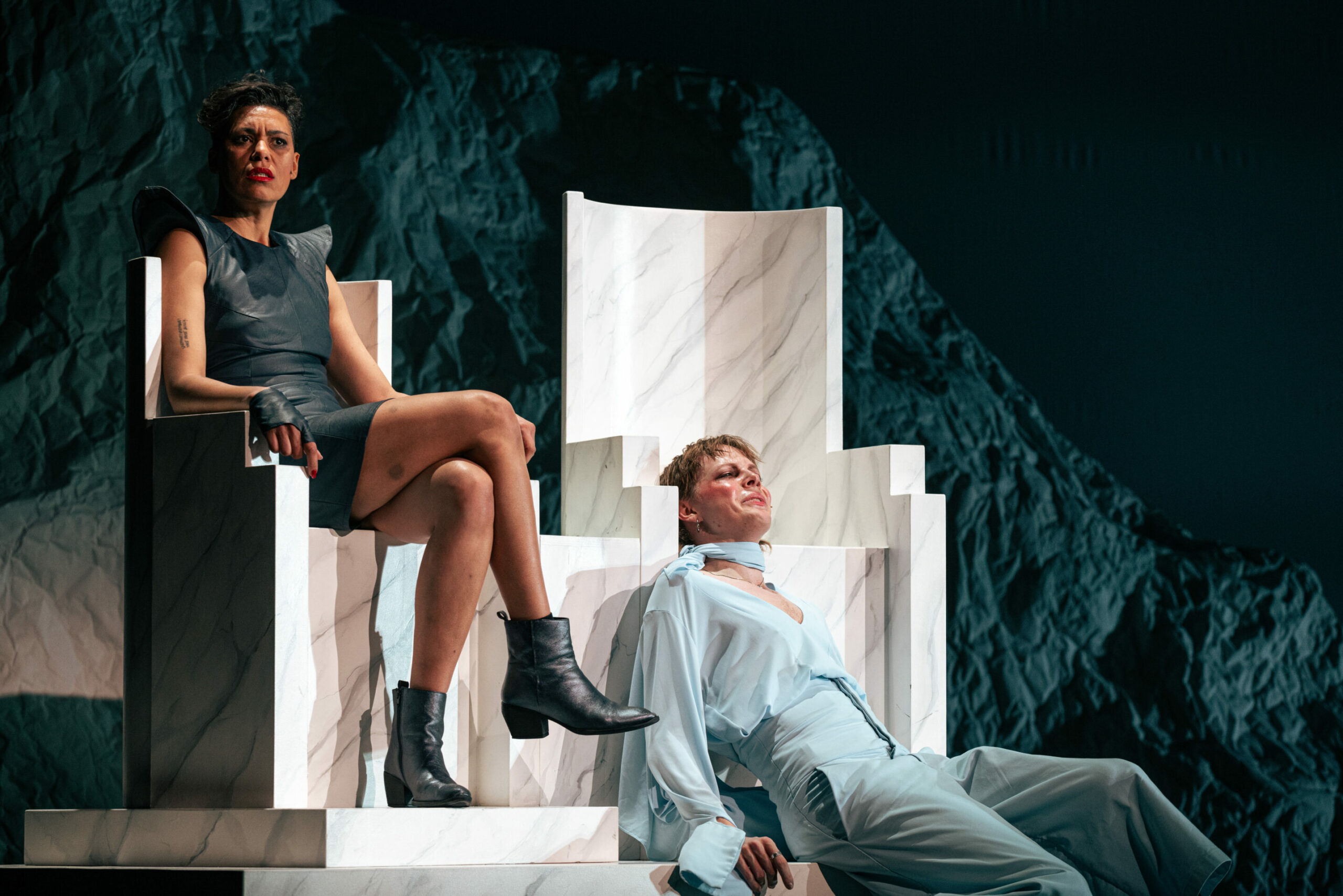
Elektra Unbound (week eight). Credit: Michiel Devijver
Keeping pace with the political race, the festival will open election week with Stefan Hertmans' speech 'Suppliants', taking stock of democracy today.
Week seven focuses on mourning and families coming together after death. Velle recommends 'Our Private Lives Bedroom': a projection from dusk to dawn telling an alternative version of Agamemnon's tragedy.
Finally, week eight will showcase 'Kolonos' by renowned choreographer Lisbeth Gruwez at the festival's most beautiful location by the steps of a river – reminisicent of an ancient Greek temple. The festival will go out with a bang at the unmissable Dionysian Midsummer Night Party on 22 June.
For more information on the 'All Greeks Festival', see here.

